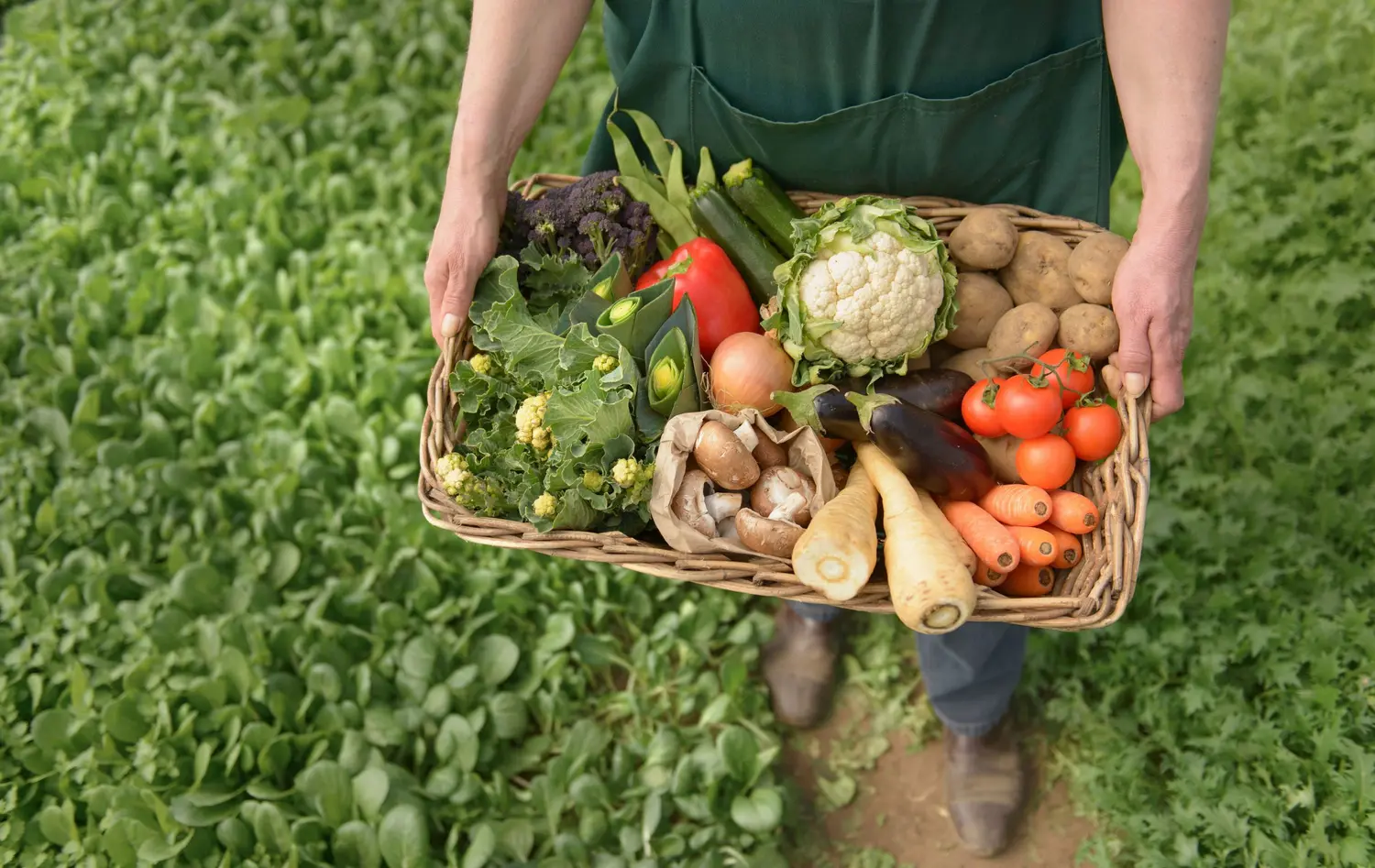A report released by the United Nations Environment Program (UNEP) revealed that in 2019, 931 million tons of food were wasted worldwide. This amount represents 17% of the total food available for consumption, including households, retailers, restaurants and other food services.
The report, titled Food Waste Index, highlights that food waste is a global problem and is not just limited to developed countries. It provides key data to track progress against Sustainable Development Goal (SDG) 12.3, which aims to halve food waste by 2030.
The study reveals that almost all countries analyzed showed significant levels of waste, regardless of income level. Surprisingly, most waste occurs in households, which discard 11% of the total food available in the supply chain. Food services and retail establishments waste 5% and 2% respectively.
Food waste not only has significant environmental impacts, such as contributing to greenhouse gas emissions, but also affects social and economic issues. With hunger and food insecurity on the rise, it becomes crucial that consumers play an active role in reducing waste in their homes.
Countries are encouraged to include the issue of food waste in their Nationally Determined Contributions (NDCs) under the Paris Agreement, aiming to strengthen food security and reduce costs for households. Raising awareness about food waste and implementing measures to reduce it are key to achieving a more sustainable future, ensuring food availability, fighting hunger and reducing negative impacts on the environment.
Alerta Vermelho: Consumo Global de Alimentos deve Explodir Em 62% até 2025, Requerendo Soluções Produtivas Urgentes
Global food consumption is projected to increase by 62% by 2025, mainly in emerging countries, which implies the need for greater productivity per cultivated area. In addition to this increase in demand, food waste is an issue of concern.
According to Professor Godofredo Cesar Vitti, from the Luiz de Queiroz School of Agriculture at the University of São Paulo (Esalq/USP), the direct waste of food by human beings would be enough to feed 32 million people.
Vitti highlighted that Brazil will assume responsibility for 40% of world food production, currently leading the production of food, energy and fiber. During his lecture at the SolloAgro Summit, an event that brings together professionals, companies, universities and research institutes in the agricultural sector, relevant topics such as agriculture 4.0, soil management, sustainability and carbon balance were discussed.
To meet this growing demand, Vitti highlighted the need to act on three fronts: increase in cultivated area, increase in productivity and greater intensity of cultivation. In this context, fertilization plays a crucial role in the implantation of different crops and in improving the quality of food produced.
The professor emphasized that Brazil has critical natural resources, such as land, water and climate, and if it can implement and maintain well-known strategies, it will assume an important role as a producer and exporter. He also pointed out that – in the next 50 years – humanity will face fundamental challenges, including the transition to renewable energy, freshwater scarcity, environmental conservation, poverty, education and democracy, noting that agriculture plays an essential role in solving these questions.
A reassessment of consumption patterns is crucial, considering the following aspects:
- Consumption inequality: High-income countries, which represent just 15% of the world's population, account for more than half of global consumption, while poorer countries contribute significantly less.
- Regional Differences: While global consumption has increased due to economic growth, African households have an average consumption rate 201TP3Q lower than levels 25 years ago.
- Demographic pressure: With a projected world population of around 8 billion people by 2025, combined with rising living standards, there could be serious strains on the distribution of resources such as land, water and energy, particularly in emerging countries.
- Environmental impacts: The increase in agricultural productivity can result in threats to ecosystems, especially in areas such as forests, mountainous regions and water sources.
To address these challenges, the Marrakech Process was established as a global campaign to promote Sustainable Production and Consumption (SCP). This initiative seeks to formulate a global plan of action for the PCS, in order to meet the requirements of the Johannesburg Plan of Implementation, resulting from the 2002 World Summit on Sustainable Development. UNDESA (United Nations Department for Economic and Social Affairs) play important roles in this process, along with national governments, development agencies, the private sector, civil society and other stakeholders. Collaboration between these different actors is essential to ensure the effective implementation of policies and actions that promote sustainable development in all spheres of society. Through dialogue, partnership and sharing of experiences, it is possible to build a more sustainable future for present and future generations.
Agricultura Sustentável Versus Produção em Fábricas: Impactos Ambientais e Sociais em Debate
Sustainable agriculture can play a crucial role in producing healthy food and fighting climate change. To achieve this objective, several measures must be taken together.
First, it is essential to end deforestation. Protecting forests is essential to preserve biodiversity and ecosystem services, and to prevent the release of large amounts of stored carbon. At the same time, it is necessary to promote the restoration of degraded areas, allowing the recovery of these natural ecosystems.
In addition, a low-carbon agriculture approach needs to be adopted. This implies using agricultural practices that reduce greenhouse gas emissions, such as the use of soil management techniques that increase its capacity to retain carbon, conservation agriculture, which avoids excessive soil disturbance, and the use of integrated production systems, which combine different crops and animal husbandry in a sustainable way.
The diversification of production systems is also crucial. The adoption of systems based on biodiversity, such as agroecology, promotes the resilience of agricultural ecosystems, reduces dependence on external inputs and increases productivity in a sustainable way. This involves crop diversification, crop rotation and the use of practices that promote soil health, such as multiplying the diversity of soil microorganisms.
Another necessary change is to reduce meat consumption and increase consumption of plant proteins. Animal production requires large areas of land, water and food, in addition to contributing to greenhouse gas emissions. Opting for a more plant-based diet can result in greater efficiency in resource use and less environmental impact.
It is important to expand the number of species used in food. The diversification of food grown and consumed is essential to promote food security, preserve agrobiodiversity and reduce dependence on a limited number of crops.
However, there is a need to closely monitor changes towards factory food production, disconnected from nature and farmers. While these options may have climate benefits, the consequences for human health and food security need to be considered, as well as the risk of concentration of food production and the impact on rural populations.
The combination of sustainable agriculture, which involves practices such as ending deforestation, low carbon agriculture, restoring ecosystems, production systems based on biodiversity, multiplying the diversity of soil microorganisms, reducing meat consumption, increasing consumption of plant proteins and expanding the number of species used in food, can be a way to produce healthy foods.
Faced with the current scenario of global environmental crisis, sustainable development emerges as the main solution to face the challenges and guarantee a prosperous future for the planet. This concept seeks to establish a balance between society, nature and economy, recognizing their interdependence and the need to preserve natural resources.
Governments, companies and organizations are joining efforts to seek ways to promote sustainable development, ensuring progress without compromising future generations. One of the key strategies is environmental awareness and education, aiming to engage all sectors of society in favor of the environment.
For this, policies and actions are being implemented, seeking to transform consumption patterns. An example is the adoption of recyclable and biodegradable products, such as the bags used in supermarkets. This measure aims to reduce the amount of waste and minimize the environmental impact caused by improper disposal.
In addition, major manufacturers are incorporating sustainable practices into their daily operations, seeking to reduce costs and emissions. These companies recognize the importance of assuming environmental responsibility and are implementing measures ranging from reducing the consumption of natural resources to the adoption of clean and efficient technologies in their production chains.
However, sustainable development goes beyond practical measures. It is necessary to encourage a change in mentality, where environmental awareness is incorporated into all spheres of society. Environmental education plays a key role in this process, enabling people to adopt sustainable practices in their daily lives and understand the consequences of their actions on the environment.
In this way, sustainable development requires a comprehensive approach, involving the collaboration of governments, companies, organizations and the active participation of society. With the implementation of sustainable policies, concrete actions, environmental awareness and engagement of all sectors, a path can be taken towards a future in which progress is aligned with environmental preservation, guaranteeing a healthy and flourishing planet for present generations and future.
How to encourage responsible consumption and production worldwide?
Promoting responsible consumption and production globally is critical to achieving the sustainable development goals. This requires taking comprehensive approaches and involving different actors, including governments, the business sector, civil society organizations and individuals. Some strategies that can be adopted include:
- Awareness and education: It is important to make people aware of the negative impacts of excessive consumption and unsustainable production. Awareness campaigns and educational programs can help raise awareness of the importance of adopting responsible practices.
- Public regulations and policies: Governments can implement regulations and policies that encourage responsible consumption and production practices. This can include imposing sustainability targets, tax incentives for companies that adopt responsible practices, and restrictions on practices that are harmful to the environment.
- Innovation and technology: Investments in research and development of sustainable technologies can boost the adoption of responsible practices. This includes developing clean energy solutions, recyclable materials and more efficient production processes.
- Business Sector Engagement: Businesses play a key role in promoting responsible consumption and production. They can adopt sustainable practices in their operations, such as reducing waste, using resources efficiently and promoting responsible supply chains. In addition, companies can share their experiences and best practices, inspiring others to follow suit.
- Collaboration and partnerships: Cooperation between different actors is essential to drive responsible consumption and production. Partnerships between governments, companies, non-governmental organizations and local communities can facilitate the exchange of knowledge, resources and experiences, leading to more effective results.
It is important to remember that encouraging responsible consumption and production is not restricted to a single country or region, but requires coordinated actions at a global level. The implementation of the UN Sustainable Development Goals (SDGs), in particular SDG 12 – Responsible Consumption and Production, provides a comprehensive framework to guide these actions and promote the transition to a more sustainable and equitable economic model.
The need to promote responsible consumption and production is evident in light of the environmental, social and economic challenges we face today. Reassessing our consumption patterns is crucial to ensuring a sustainable future for present and future generations.
The data show that there is great inequality in global consumption, with a minority of the population being responsible for most consumption. This puts significant pressure on natural resources and contributes to environmental degradation. It is necessary to seek a balance, where consumption is done in a conscious and responsible way, taking into account the limits of the planet.
In the context of small and medium-sized companies, it is important to encourage the disclosure of their sustainable practices. With access to social media and digital channels, these companies can communicate their actions in a simple and clear way, reaching their target audience. This not only strengthens the company's image, but also attracts customers who value sustainability.
In addition, it is essential to combat food waste and reduce waste generation. The implementation of strategies based on the Circular Economy can be an effective solution, involving the design of products for circularity, the reduction of losses in manufacturing processes and the promotion of reuse and recycling.
Awareness and relevant information on sustainable development must be disseminated widely, involving the business sector, government and society as a whole. Changing people's mindsets is key to creating a culture of responsible consumption. Examples of successful initiatives show that it is possible to transform practices and behaviors, driving the transition to a more sustainable world.




